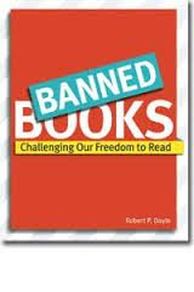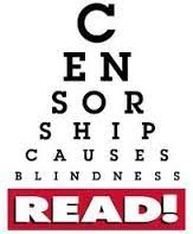 Powell’s sponsored “Banned Books Week” is September 27 to October 3, and they highlight banned books and various reasons some schools and libraries have made the arbitrary decision to ban a book in Oregon. Powells reviewed hundreds of documented appeals to remove materials from a local public library, school library, or course curriculum. A few of the 30 books identified were challenged in Oregon, along with some details about the objections and outcomes. Here are some of the books subjected to review by famous authors you might recognize. “Light in the Attic” by the late Shel Silverstein A perennial favorite, Shel Silverstein's collection of poems was challenged in both the Salem-Keizer Public Schools and the Eagle Point School District, for the possibility of provoking children to "act in opposition to family taught behavior and values" and exposing children to frightening or gory material. Outcome: Book retained “Ramona the Brave” by Beverly Cleary The beloved Ramona Quimby by Oregon's own Beverly Cleary was challenged in 1993 at the Salem-Kezier School District for taking Jesus's name in vain. Outcome: Retained. “Harry Potter and the Sorcerer’s Stone” by J. K. Rowling The first part of Rowling's legendary Harry Potter series was released in 1997 and has been challenged countless times since then. It was opposed at Bend's Three Rivers Elementary School in 2000 due to its references to witchcraft and concerns that the book could "lead children to hatred and rebellion." Outcome: Retained. “A Wrinkle in Time” by Madeleine L'Engle Madeleine L'Engle's Newbery Award–winning classic was challenged in 1990 at the Mid Valley Elementary School in Hood River County on the grounds of sorcery, witchcraft, magic, and having a demonic character. Outcome: Unknown. “Then Again Maybe I Won’t, by Judy Blume Judy Blume's novel about a boy's turbulent adolescence was challenged at the Salem-Keizer School District in 1989. Reasons: it is a "dismal tale of a young boy's inability to cope and his very inappropriate responses to the changes taking place in his life," and conveys a "detrimental attitude towards a child's natural development and raises questions about sexual arousal that elementary school students are too young to experience and would leave them with the wrong attitude about the opposite sex." Outcome: Retained. “Absolutely True Diary of a Part Time Indian” by Sherman Alexie Alexie's National Book Award–winning first novel for young adults is one of the most frequently challenged books in the country. In 2014, several people challenged its use in the Sweet Home 8th grade language arts class "because of its use of words not allowed by the student code of conduct and its discussion of sexual matters." Outcome: Retained for 8th graders. The school board voted to keep the book as long as parents were informed of a specific alternative lesson in a timely fashion. “The Clan of the Cave Bear” by Jean Auel Auel's prehistoric novel about a group of Neanderthals was challenged by a parent at the Cascade Middle School library in Eugene. Concerns about a rape scene in the book, and that students might try the sexual acts and values depicted in the book, actually led to its removal from the library in 1992. Outcome: Removed “Equus” by Peter Shaffer In 1994, a parent at Redmond High School requested that Peter Shaffer's Tony Award–winning play be removed from a sophomore honors required reading list. The parent disapproved of sexual messages, objectionable language, and "Christian insults." Outcome: Removed from required list; still on supplemental list with parental permission required, and in the school library. “The Stand” by Stephen King King's post-apocalyptic tome faced opposition in 1989 at the Whitford Intermediate School Library in Beaverton, and again in 1997 in the Douglas County Library System, for language, graphic sexual scenes, and violence. Outcomes: Restricted to ninth-grade students with parental consent at Whitford; retained at Douglas County Library. Most of the 30 books reviewed were retained with stipulations for only junior high or high school students with parental permission to read. In addition for recognition of “Banned Books Week” this year, Powells reviewed hundreds of records of challenged materials reported by Oregon schools and libraries over the past 35 years. In the process, they came across some surprising, amusing, and, at times, weirdly specific arguments for banning books. Here are a few of the 10 particularly strange reasons that demonstrate how absurd it is to let an individual or group determine what books are available to all of us, according to Powells review. Note: in most cases, the books were not ultimately removed, but in two instances, the outcome was undocumented. You can read all of them on Powells website at the link under resources. 1. Use of aliens to represent weather information: The Book: Earth Weather, as Explained by Professor Xargle by Jeanne Willis Where It Was Challenged: Multnomah County Library Date: 1998 Full Grievance: "Use of aliens to present weather information; inappropriate for children under 8 years old." Outcome: Retained by library. 2. "Conjugal love between mice." The Book: 2. Abel's Island by William Steig Where It Was Challenged: Fairfield Elementary School in Eugene Date: 1994 Full Grievance: "Violence and mention of conjugal love between mice." Outcome: Retained by school. 3. "Use of an amulet to prevent pregnancy." The Books: 3. Song of the Lioness, Books 1-3 by Tamora Pierce Where It Was Challenged: David Hill Elementary School in Hillsboro Date: 1989 Full Grievance: "Sexual references and the use of an amulet to prevent pregnancy." Outcome: Removed by a library staff member but later returned to the shelves. 4. "Teenagers already have trouble with their emotions without being stimulated by poorly written books." The Books: More than 50 Harlequin romances were threatened with removal Where They Were Challenged: Glide High School library Date: 1984 Full Grievance: "Teenagers already have trouble with their emotions without being stimulated by poorly written books." Outcome: Unknown. In “Fahrenheit 451,” the degree when paper burns, Bradbury creates a universe in conflict between the stagnation of ignorance versus timeliness and stubborn determination to embrace knowledge and save the written word. The main characters struggle amid these tensions. The fireman’s governmental duty is to destroy knowledge by burning books and promote ignorance in order to equalize the population and promote sameness, not unlike current individuals who try and use censorship to mitigate literary diversity. The fireman is conflicted and encounters people who see the spark of doubt about this approach. His resultant search for knowledge destroys the unquestioning ignorance he used to share with nearly everyone. He confronts the torpid status quo, develops humanity for the greater good and emerges the hero. Enlightened citizen revolutionaries in the book commit to the preservation of knowledge by memorizing books and go into the forest reciting them, lest the stories be lost forever as books are burned. While books are not being burned today, Powells reminds us of the forces who seek to control what is read compromising the freedom of the local library to be a bastion of American liberty and repository of learning and literature. If you had to memorize a book, not the Bible or religious text, what would it be? I would memorize “The Odyssey of Homer” because the themes have remained universal and relevant throughout the centuries: Love, Hate, Betrayal, Hospitality, Treachery, Loyalty, Jealousy, Mercy, Reconciliation, and Redemption. Sing in me, Muse, and through me tell the story… Robert Fitzgerald translation The Odyssey of Homer 1961 Resources Powells
0 Comments
Leave a Reply. |
Dava Castillo
is retired and lives in Clearlake, California. She has three grown
children and one grandson and a Bachelor’s degree in Health Services
Administration from St. Mary’s College in Moraga California. On the
home front Dava enjoys time with her family, reading, gardening, cooking
and sewing. Archives
November 2015
|


